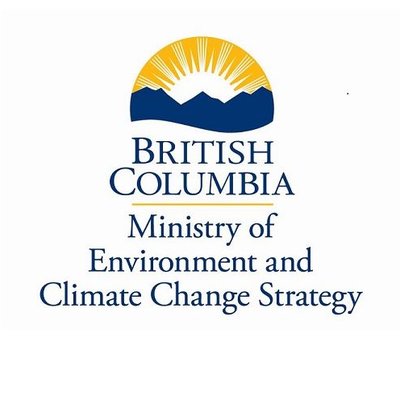The Ministry of Environment in British Columbia (BC) plays a critical role in safeguarding the province’s natural resources, addressing environmental challenges, and promoting sustainable practices. As the environmental steward of one of Canada’s most ecologically diverse provinces, the Ministry not only ensures the health of BC’s ecosystems but also works toward the sustainability of the province’s economy and society. This in-depth guide will explore the Ministry’s roles, responsibilities, initiatives, and the impact it has on British Columbia’s environmental future.
What is the Ministry of Environment, BC?
The Ministry of Environment, now integrated into the Ministry of Environment and Climate Change Strategy, is the provincial government department responsible for the protection, conservation, and enhancement of BC’s environment. Its mandate spans a wide array of environmental issues, ranging from climate change to water quality, air pollution, and waste management.
The Ministry’s goal is to ensure that the environment remains a safe and healthy place for people, wildlife, and plants. The Ministry does this by creating and implementing policies, regulations, and programs aimed at reducing pollution, conserving natural resources, promoting clean energy, and enhancing the quality of life for residents of BC.
Key Responsibilities of the Ministry of Environment BC
The Ministry of Environment oversees a variety of areas aimed at ensuring the long-term sustainability of the province. Some of its key responsibilities include:
- Environmental Protection and Conservation: Ensuring the sustainability of BC’s ecosystems by regulating land use, promoting biodiversity, and protecting wildlife habitats.
- Climate Change Mitigation and Adaptation: Developing and implementing strategies to reduce greenhouse gas emissions, fostering clean energy, and helping BC adapt to climate-related impacts.
- Pollution Control and Waste Management: Managing pollution from industrial and residential sources and promoting recycling and composting efforts to reduce waste sent to landfills.
- Environmental Monitoring and Research: Monitoring the health of the province’s environment, collecting scientific data, and providing guidance on environmental best practices.
- Sustainable Resource Management: Overseeing BC’s natural resources, including water, forests, and minerals, ensuring their use is sustainable and that they contribute to the well-being of both current and future generations.
- Public Engagement and Education: Educating and engaging the public on environmental issues through outreach programs, workshops, and public consultations.
The Ministry’s Role in Addressing Climate Change in BC
One of the Ministry’s central roles is in addressing the rapidly evolving challenge of climate change. British Columbia is experiencing the effects of climate change, with rising temperatures, increased wildfire activity, shifting rainfall patterns, and more frequent extreme weather events such as floods and droughts. To address these challenges, the Ministry of Environment is involved in both mitigation (reducing the impacts of climate change) and adaptation (adjusting to the changes that are already happening).
Climate Change Mitigation
Mitigation refers to actions that reduce or prevent the release of greenhouse gases into the atmosphere. The Ministry has implemented a range of measures to help reduce BC’s carbon footprint:
- Carbon Tax and Carbon Pricing: In 2008, BC became the first jurisdiction in North America to introduce a carbon tax, which taxes fossil fuels based on their carbon content. This tax is designed to incentivize businesses and individuals to reduce their emissions by shifting to cleaner energy sources. Over the years, BC’s carbon tax has become a model for other regions aiming to tackle climate change.
- Renewable Energy Development: The Ministry plays a key role in promoting renewable energy technologies, such as wind, solar, and hydroelectric power. BC is uniquely positioned to harness clean, renewable energy thanks to its abundant natural resources.
- Energy Efficiency Programs: BC has a variety of programs that promote energy efficiency in homes, businesses, and industries. These programs include rebates for energy-efficient appliances, energy audits, and incentives for retrofitting buildings.
- Electric Vehicles (EVs): The Ministry has been instrumental in promoting the transition to electric vehicles by implementing incentives for EV purchases, expanding the EV charging network, and providing funding for electric vehicle research and development.
- Green Buildings: BC encourages the construction of green buildings by promoting LEED (Leadership in Energy and Environmental Design) certification and energy-efficient building standards. The province has also enacted legislation requiring new buildings to meet high energy efficiency standards.
Climate Change Adaptation
While mitigation is essential, the reality is that some impacts of climate change are already unavoidable. The Ministry of Environment works to help communities and ecosystems adapt to these impacts. Examples of adaptation strategies include:
- Flood Risk Management: In response to increased flooding due to heavy rainfall and rising sea levels, the Ministry works with local governments to develop flood protection strategies. This includes creating floodplain mapping, elevating infrastructure, and reinforcing dikes and dams.
- Wildfire Management: BC has experienced an increase in the frequency and severity of wildfires, especially in forested regions. The Ministry works with the BC Wildfire Service to develop fire prevention programs, manage forest fuels, and improve firefighting capabilities.
- Water Management: As climate change affects rainfall patterns, managing water resources has become increasingly challenging. The Ministry ensures that BC’s water supply is sustainable by promoting water conservation and improving water storage infrastructure, particularly in drought-prone areas.
Protecting BC’s Water Resources
Water is a precious resource in British Columbia, essential for both human consumption and sustaining ecosystems. The Ministry of Environment plays a significant role in protecting water quality and ensuring that water is used responsibly and sustainably.
Water Quality Protection
The Ministry is tasked with maintaining BC’s high water quality by setting strict water quality standards, monitoring water bodies, and regulating pollutants. These efforts are essential in keeping drinking water safe, maintaining the health of aquatic ecosystems, and ensuring the sustainability of fisheries.
- Pollution from Industrial and Agricultural Activities: The Ministry works to prevent contaminants such as chemicals, heavy metals, and pesticides from entering BC’s water sources. Through regulatory frameworks, the Ministry ensures that industries and farms manage their waste properly and adhere to environmental standards.
- Wastewater Treatment: The Ministry oversees wastewater treatment programs, ensuring that municipal sewage systems operate efficiently and that treated water meets environmental standards before being discharged into rivers, lakes, or oceans.
- Water Conservation Initiatives: The Ministry encourages water conservation by providing guidelines for efficient water use, particularly during dry periods. Water-saving technologies such as low-flow faucets, irrigation systems, and drought-resistant landscaping are promoted through educational campaigns.
The Water Sustainability Act
The Water Sustainability Act is a key piece of legislation designed to manage and protect water resources in BC. The Act regulates the allocation and use of water across the province, ensuring that water is distributed fairly while preventing over-extraction and environmental degradation.
- Environmental Flow Needs (EFN): Under the Water Sustainability Act, the Ministry ensures that rivers and streams maintain adequate water flow to support aquatic life. This is critical for maintaining fish habitats and preserving biodiversity.
- Water Licenses: The Ministry also regulates the issuance of water licenses for industrial, agricultural, and residential use. By managing these licenses, the Ministry ensures that water use is balanced with environmental protection and sustainability goals.
Air Quality and Pollution Control
The Ministry of Environment is committed to maintaining and improving the air quality in British Columbia. The province’s air quality has been historically good, but pollution from industrial activity, vehicles, and wildfires can sometimes degrade air quality. The Ministry is at the forefront of monitoring and regulating air pollution in BC.
Air Quality Monitoring
BC has an extensive air quality monitoring network, with stations located throughout the province. These stations measure levels of various pollutants, including particulate matter (PM), nitrogen dioxide (NO2), sulfur dioxide (SO2), and ozone (O3). The data collected is used to assess air quality and issue public health advisories if necessary.
- Wildfire Smoke: In recent years, wildfire smoke has become a significant source of air pollution in BC. The Ministry works with local authorities and health agencies to monitor air quality during wildfire events and issue air quality advisories to protect the health of vulnerable populations.
- Industrial Emissions: The Ministry sets stringent air quality standards for industries and works to ensure that factories, power plants, and other industrial facilities adhere to these standards. It also encourages industries to adopt cleaner technologies to reduce emissions.
Regulations to Improve Air Quality
The Ministry’s regulations are designed to limit air pollution from various sources. BC has set provincial air quality standards for pollutants like particulate matter and ground-level ozone, and these standards are enforced by the Ministry to ensure the health of both the environment and the population.
- Vehicle Emissions Standards: The Ministry supports efforts to reduce vehicle emissions by promoting the use of cleaner fuels, encouraging the transition to electric vehicles, and working with the federal government to implement stricter vehicle emissions standards.
- Burning Regulations: In rural areas, the Ministry regulates open burning, such as agricultural burns or residential yard waste fires, to prevent harmful smoke pollution. During high-risk periods, the Ministry may issue burn bans to protect air quality.
Waste Management and Recycling in BC
Waste management is a critical part of the Ministry’s efforts to reduce environmental impact. BC has been a leader in North America in developing programs to divert waste from landfills and promote recycling and composting.
Extended Producer Responsibility (EPR)
BC’s Extended Producer Responsibility programs are a key component of the province’s waste management strategy. These programs require manufacturers to take responsibility for the disposal or recycling of products after their use. For example, BC has established EPR programs for electronics, batteries, tires, and packaging.
- Recycling Programs: Through EPR programs, manufacturers and retailers are responsible for ensuring their products are collected, reused, or recycled when they reach the end of their life. This has led to a significant reduction in waste and has created a circular economy where products are reused and materials are kept in circulation.
Zero Waste BC
The Ministry supports the goal of a Zero Waste BC by promoting waste reduction at all levels of society, from individuals to businesses. Zero waste involves redesigning resource life cycles so that all products are reused, recycled, or composted, and waste is eliminated.
- Composting Initiatives: The Ministry promotes composting as a way to reduce the amount of organic waste sent to landfills. Local governments often offer composting programs to residents, and businesses are encouraged to participate in food waste diversion programs.
- Public Education: One of the Ministry’s most important roles is educating the public about the importance of waste reduction and recycling. Through outreach campaigns, the Ministry works to raise awareness and encourage responsible consumption practices.
Indigenous Engagement and Collaboration
The Ministry of Environment recognizes that Indigenous peoples in BC have unique knowledge, values, and traditions that are closely tied to the land and environment. Collaborative approaches between the Ministry and Indigenous communities are essential for effective environmental stewardship.
Co-Management of Protected Areas
Many Indigenous communities in BC have partnered with the Ministry to co-manage parks and protected areas. This collaborative approach ensures that traditional knowledge is integrated into the decision-making process and that environmental policies respect the rights and interests of Indigenous peoples.
- Traditional Ecological Knowledge (TEK): Indigenous knowledge systems, including Traditional Ecological Knowledge (TEK), provide valuable insights into managing and conserving ecosystems. The Ministry actively integrates TEK into environmental assessments, wildlife management, and land-use planning.
Environmental Impact Assessments
The Ministry also involves Indigenous communities in environmental impact assessments (EIAs) for major development projects such as mining, hydroelectric power, and pipelines. This ensures that Indigenous rights are respected and that development does not compromise environmental or cultural values.
How to Get Involved: Opportunities for Public Engagement
Public participation is critical for the Ministry of Environment’s work. The Ministry offers various avenues for individuals to become actively involved in environmental protection, policy development, and sustainability efforts.
Public Consultations and Policy Development
The Ministry regularly holds public consultations on a wide range of environmental issues, including land use, pollution control, and climate change policies. These consultations allow citizens, organizations, and other stakeholders to provide input, share concerns, and contribute to the development of policies and programs.
Volunteer and Community-Based Programs
There are numerous opportunities for residents to get involved in environmental projects, such as tree planting, stream monitoring, wildlife conservation efforts, and environmental clean-up days. Many organizations and local governments offer volunteer programs in partnership with the Ministry of Environment.
Conclusion
The Ministry of Environment and Climate Change Strategy in British Columbia is pivotal in ensuring that the province’s natural resources are protected and that its environment is managed sustainably. Through proactive policies, scientific research, and public engagement, the Ministry is working to address the pressing environmental challenges facing BC, from climate change and air pollution to water conservation and waste reduction. As climate change accelerates and the demands on natural resources grow, the Ministry’s work will be more critical than ever in shaping a sustainable future for all residents of British Columbia.for more posts also read this networksights.com






Leave a Reply